It’s not always easy to sit down and say what’s bothering you. You might not even have time for that, or you might simply think that everything is perfect in your life. However, your body never lies, and when you fail to listen to it, you get “messages.” They tend to be unpleasant, but your body uses them as a last resort to reach out to you for help.
1. You grind your teeth.
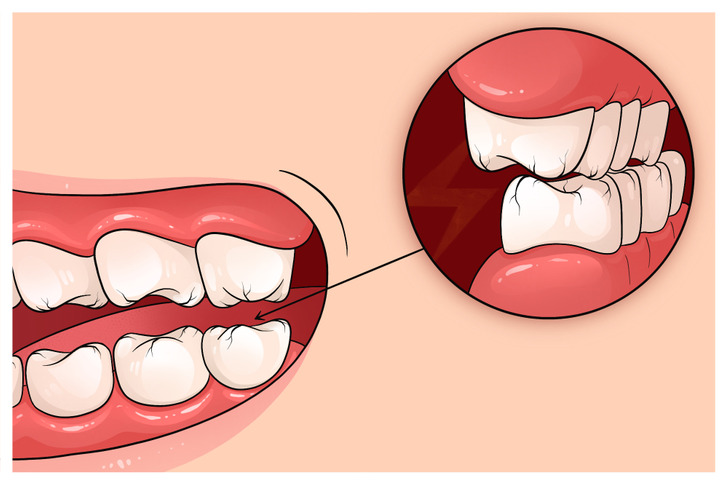
The biggest cause of tooth grinding is stress. You might find yourself biting or clenching your teeth subconsciously during the day or while sleeping. One of the telltale signs that you took up this habit is a sore jaw the next morning. You might also notice your teeth look shorter than usual. It’s a good idea to use a mouth guard to protect your teeth or attend therapy.
2. You always sweat too much.

Sweating occurs for many reasons: exercising, high temperatures, or when your brain perceives a threat. However, if you sweat constantly, it might be a sign that you’re overly anxious. Our bodies need to remove all the water through the skin, then through the kidneys, so as not to use the restroom right in the middle of defending ourselves. As a result, the fight-or-flight response is triggered, making you sweat excessively.
3. You lose more hair than usual.
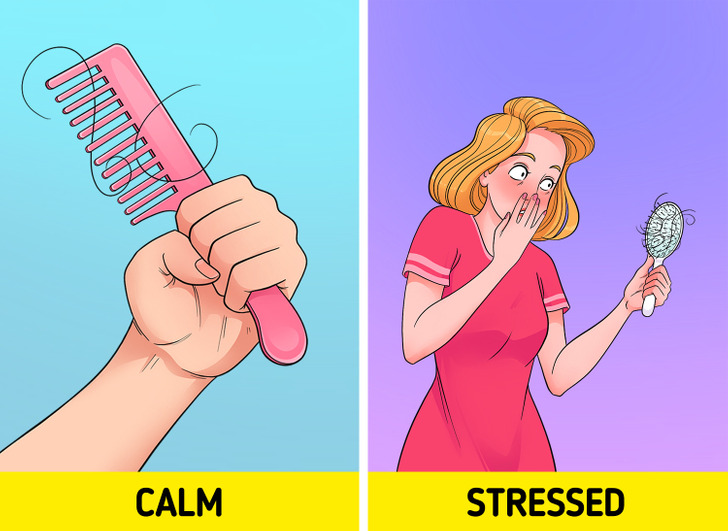
Finding more hair in the bathroom or on your comb might be a sign of hidden stress. You might even crumble or tear it out unconsciously. Emotional turmoil can disrupt the growth phase of the hair cycle. Even if nothing terrible has happened recently, remember that hair loss is usually delayed. So you might experience hair loss 6-12 weeks after a stressful event.
4. You have red spots or patches.
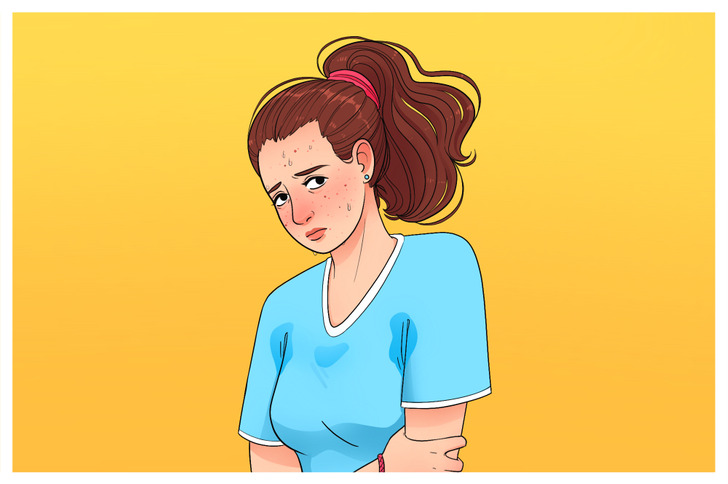
If you don’t suffer from allergies but still break out, you might have gone through an emotional roller coaster. What’s more, you can even get red spots in your mouth due to stress. You might have been so emotionally influenced that your body released some chemicals that changed your body’s response to its other functions.
5. Your eye twitches all the time.
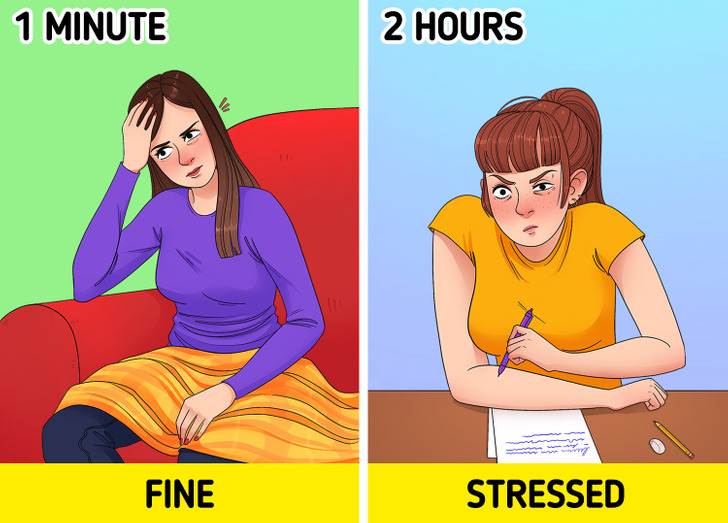
Stress can give unusual signals to your brain and face muscles. As a consequence, your eye twitches uncontrollably. You might notice the involuntary movement of your lower eyelid or, in rare cases, the upper one. In some cases, twitching lasts for weeks or even months.
6. Your mouth is always dry.
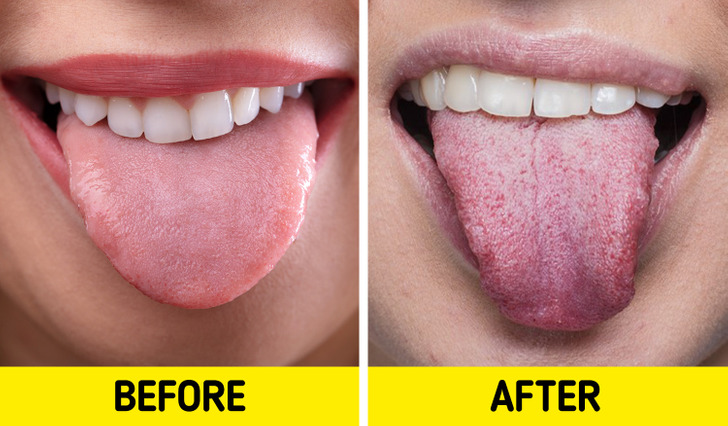
If you’re constantly thirsty and didn’t eat anything salty, pay attention to your emotional health. Prolonged periods of stress block your salivary glands, leaving you with a dry mouth. You might also find difficulty in swallowing because of how dehydrated you are.
7. Your body is cold.
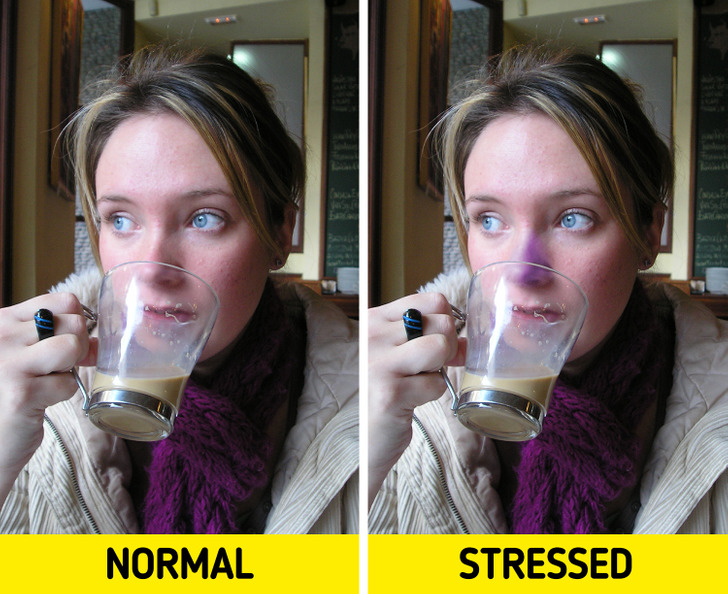
Emotional stress can be a trigger for Raynaud’s phenomenon, which causes the blood vessels in our extremities to sharply constrict for a short period of time. This results in coldness and numbness in a particular area, such as the nose, and can last anywhere from a few minutes to hours. Raynaud’s phenomenon is more common in women and among those who live in cold climates.
How do you notice that you’re under stress? What helps you to combat it?
